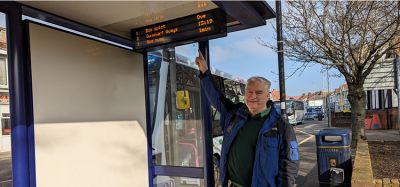NUMO New Mobility Atlas maps global mobility growth
- Like
- Digg
- Del
- Tumblr
- VKontakte
- Buffer
- Love This
- Odnoklassniki
- Meneame
- Blogger
- Amazon
- Yahoo Mail
- Gmail
- AOL
- Newsvine
- HackerNews
- Evernote
- MySpace
- Mail.ru
- Viadeo
- Line
- Comments
- Yummly
- SMS
- Viber
- Telegram
- Subscribe
- Skype
- Facebook Messenger
- Kakao
- LiveJournal
- Yammer
- Edgar
- Fintel
- Mix
- Instapaper
- Copy Link
Posted: 6 December 2019 | Sam Mehmet (Intelligent Transport)
The Atlas covers 626 cities in 53 countries and aims to provide users with knowledge that will empower them to advocate for sustainable, equitable mobility options that are accessible to everyone.


NUMO, the New Urban Mobility Alliance, has launched an extensive global platform, mapping the widespread growth of new mobility in cities.
The NUMO New Mobility Atlas is said to visualise the rapid proliferation of new mobility, including micromobility, around the world. Developed in partnership with Populus, Grin and MaaS Latam, the Atlas uses open data to track which shared transportation options — currently dockless scooters, bicycles and mopeds — are available in cities.
“We are witnessing a new transportation revolution, and shared mobility is a significant catalyst,” said NUMO Director, Harriet Tregoning. “The Atlas is a collaborative platform for a global network of policymakers, transportation companies, journalists and academics to gain a better understanding of how tech-enabled mobility disruptions are impacting cities and people.”
“By visualising the deployment of new mobility through the city perspective, we gain access to incredibly valuable insights, such as how e-scooters are gaining traction in some regions, while electric mopeds are finding more favourable conditions or markets in others,” said NUMO research lead, Sebastian Castellanos.
Development on the Atlas will be ongoing, with frequent data set updates to add new modes, operators and cities. Future versions of the Atlas will allegedly include autonomous vehicles and drones as well as a policy database in early 2020 that will allow users to compare new mobility regulations by city.
Regina Clewlow, CEO and Founder of Populus, said: “Having this Atlas is a much-needed step toward understanding micromobility worldwide and, more importantly, to start comprehending the impact it can have on urban mobility patterns. With better information, cities have the opportunity to reclaim valuable urban public space to prioritise the movement of people and more efficient modes of transportation.”
Related topics
Multimodality, Transport Governance & Policy, Travel & Passenger Information
Related organisations
Grin, MaaS Latam, Populus








